Have you ever questioned the fact that most cars are entirely dependent on gasoline? Think about it: Why is it compulsory that your tank should have plenty of gas in your tank to get from point A to point B? We did extensive research on this and compiled a load of helpful topic-related info to help you better understand the role of gasoline in cars.
So, why do cars need gas? Simply put, cars need gas to keep moving. The engines in gasoline cars need volatile fuel (gas) to mix with existing air to produce a vaporous mixture. The mixture is compressed and lit up to create an explosion. The force from the explosion pushes the pistons, which in turn provide the power needed to keep you moving.
As you can see, gas is a requisite medium for movement to take place. It does more than just that, though. Keep reading to find out how gasoline powers a car and lots of other helpful related topics. Let’s jump right in, shall we?
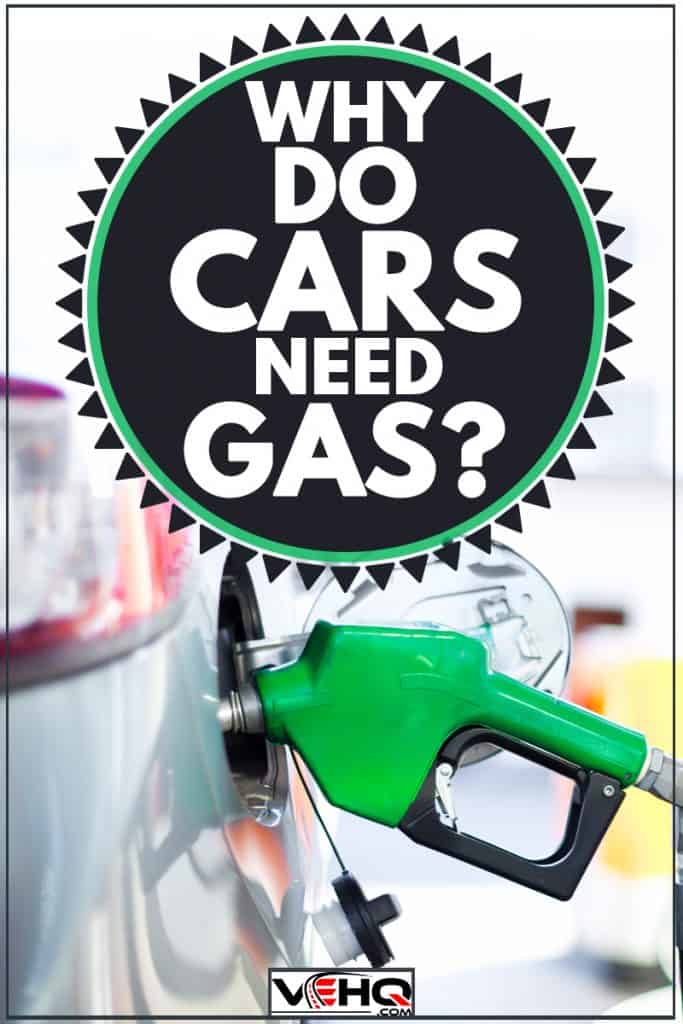
How Does Gasoline Power A Car?
Gasoline powers a car once the engine converts it into motion through a process referred to as ‘internal combustion.’ The power generated by the engine is as a result of the controlled, inconsequential explosions from inside it. These kinds of explosions occur several times in a single minute.
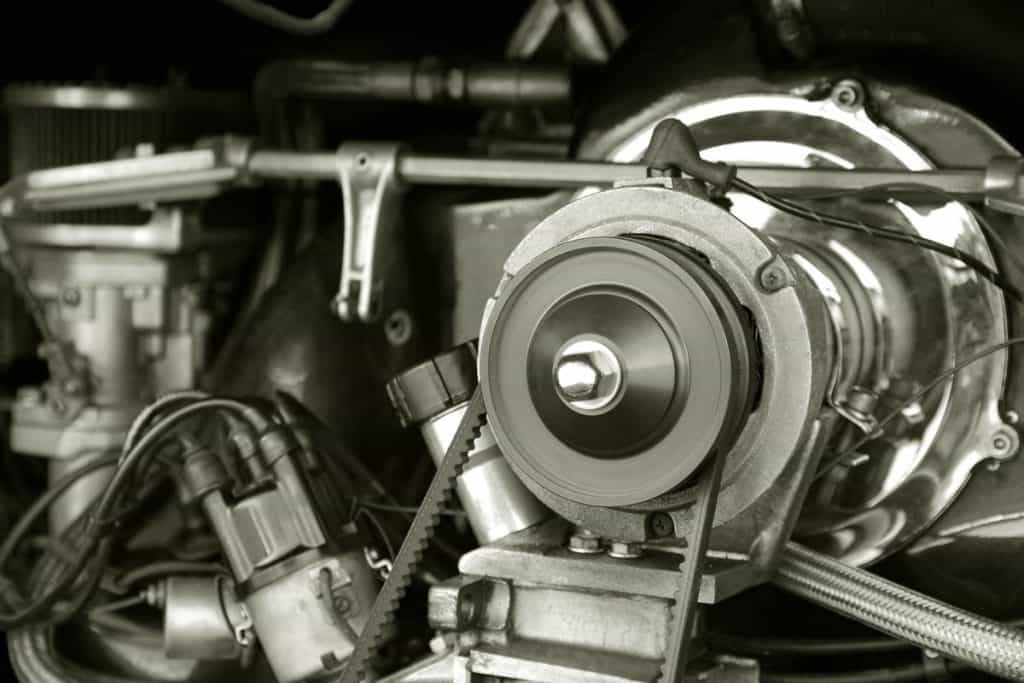
Within those crucial sixty seconds, the tiny explosions in the car engine work in ‘shifts,’ so to speak. Once the energy from one explosion is almost harnessed in full, a different explosion takes place. This cycle goes on and on, thereby providing the power required to maintain constant motion.
Gasoline engines run on a little something known as a four-stroke combustion cycle. The cycle involves four primary processes: intake, compression, combustion, and ends with the exhaust. This constant cycle within the car engine keeps the car moving for as long as the tank is full.
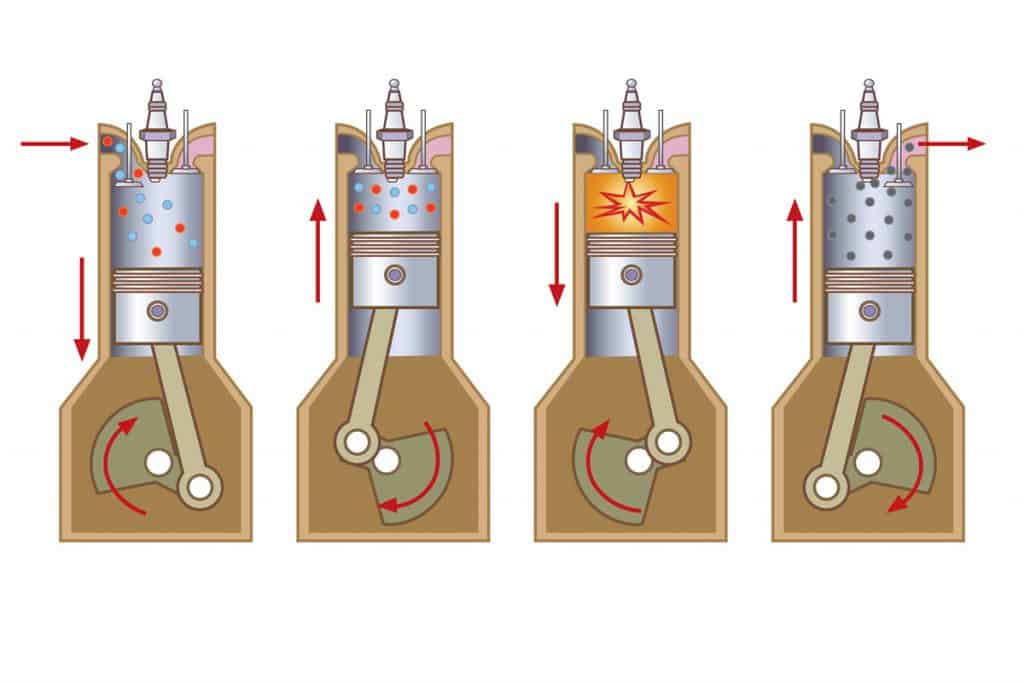
Without gas, there’s no intake, without intake, there’s no compression, and so on.
Do Cars Really Need Premium Gas?
The mere act of quitting premium gasoline and sticking to a regular grade can save you more than 40 cents per gallon. Premium gas isn’t really what you’d call necessity for your vehicle – we’ll tell you why.
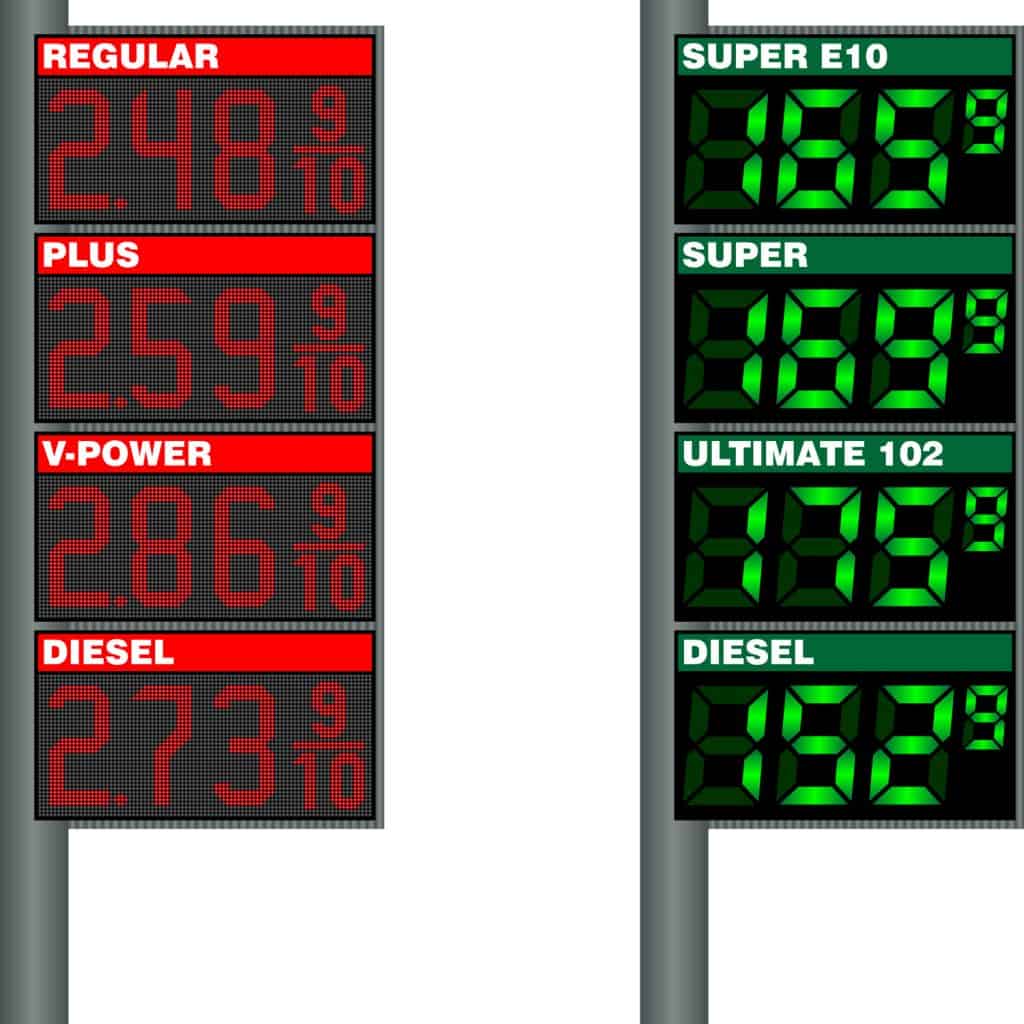
Today’s automobiles are incredibly advanced as far as engine performance goes. What this means is that they can still comfortably run on regular gas, even if the manual indicates that you use premium gasoline. On most occasions, the engine keeps running without damage of any kind.
However, there’s a chance that your car’s acceleration might experience a tiny form of hardship. Acceleration from 0 to 50 mph, for instance, might be slower by half a second. You probably won’t even notice this minor complication.
Years ago, premium gas was used to clean engines, since it contained a good amount of additives such as detergent. Nowadays, though, such additives can be toxic to the environment. Cut pollution and save that extra cash by making the switch to regular unleaded gas.
Should you also do the same for your motorcycle? Read all about in this post: Do Motorcycles Take Regular Gas?
Does Premium Gas Give Better Mileage?
This is a common myth that most drivers use to justify their regular use of premium gas. If you think that premium gas provides better miles per gallon, it’s time you knew the truth, the whole truth, and nothing but the truth.
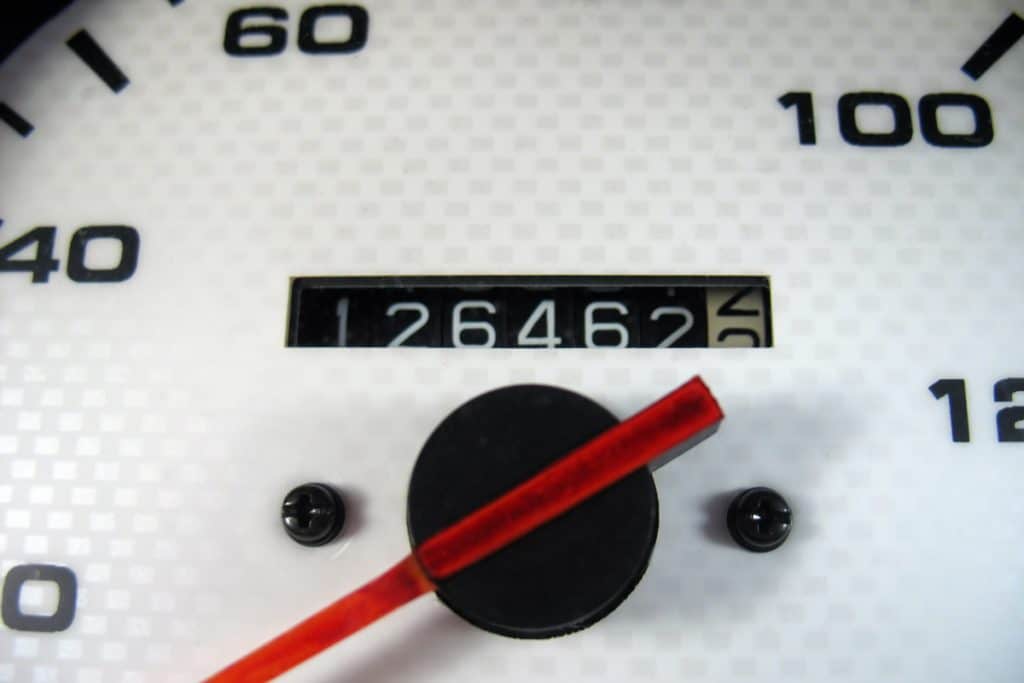
Every gallon of gas you get from your local gas station is comprised of up to seven various ingredients. The specific energy amounts in regular or premium gas vary significantly from one company to the next. The price depends on the type of additives used.
Alternative premium additives, on the other hand, have the opposite effect and increase your mpg to some degree. Don’t get it twisted, though. Premium gas does boost a car’s mileage but at a small and almost unnoticeable degree.
Here’s the kicker: to increase the octane rating of premium fuel, most companies use ethanol. Since ethanol contains a lower energy level in comparison to untreated gas, it reduces your vehicle’s mileage.
If you’re planning on buying a used pickup, read What’s Considered Good Mileage for a Used Pickup? to make a more informed decision.
Do Luxury Cars Need Premium Gas?
Yes, they do, but not all of them. Some don’t need premium gas. They can run just as great on regular gasoline. Of course, they’re not what you’d call the most powerful cars, but they’re still luxury cars, and they stand out in this way.
Here are a couple of some of the most used cars that work just fine on regular gas:
- 2013 Infiniti M37: This sport sedan runs on a 3.7-liter V6 engine with 330hp.You can fuel this machine with regular gasoline, and it will run smoother than ever.
- 2014 Volvo XC90: The XC90 runs on a 3.2L 6-cylinder with 240hp. Though it runs smoothly on regular gas, there’s a noticeable power boost with premium gas.
- 2013 Cadillac ATS: While most Cadillac drivers spend big bucks on premium gas, you can save yours with the 3.6L V6 engine ATS sedan.
- 2014 Buick Lacrosse: Not only do you get to save money with this luxury car, but you also spend significantly less on insurance costs!
What Happens If You Put 87 Instead Of 93?
Since the three gas tiers – 87, 89, 93 – are all so close to each other, it’s easy to push the wrong button mistakenly. Putting a lower octane in your vehicle is a little tricky, not to mention risky.
Your engine may run smoothly, but then you’re probably damaging it without even noticing it.
That’s why modern vehicles these days come fitted with sensors that automatically tweak the ignition system to keep up with lower-octane gasoline. This only happens when moving slowly up a hill, driving down the road, and other transient conditions.
When you use a lower or higher octane, it’s highly likely that the engine may blow due to heavy knock. Luckily this rarely happens in recently-produced cars. Even so, don’t take that chance.
ALWAYS use the right fuel for your car. This is often indicated in the car manual, fuel door, or fuel cap.
What Happens If You Don’t Put Gas In Your Car?
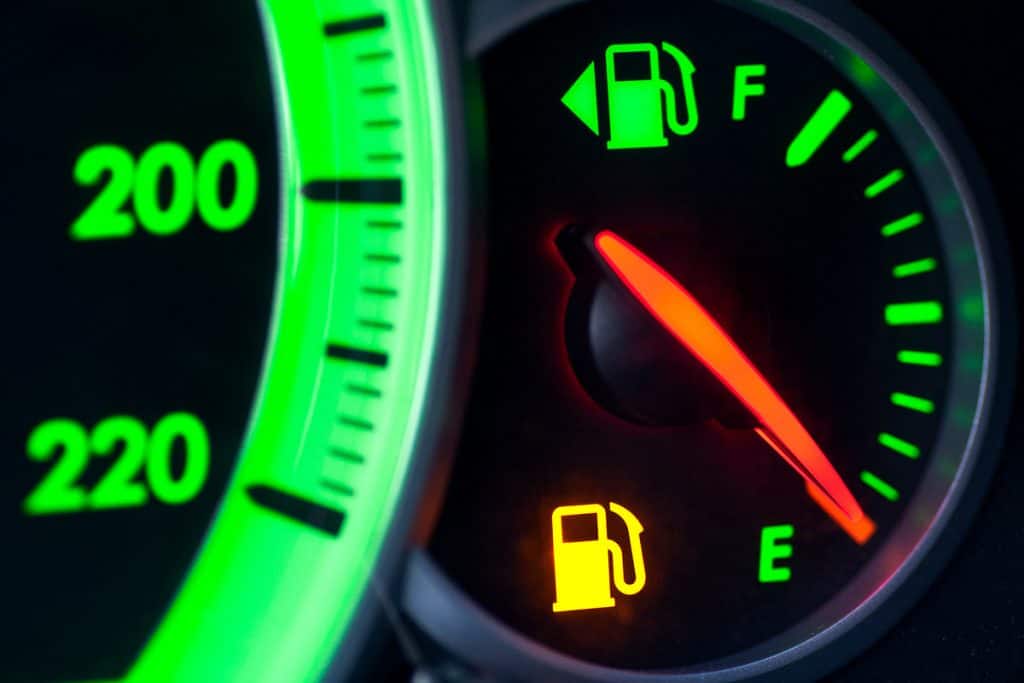
On the more apparent bit, without gas in your tank, you’re not going anywhere. On the more mechanical bit, the gunk from the surface of your fuel tank may find its way into essential vehicle components. This might damage the fuel filter and increase the chances of a fuel injector clog.
Luckily, today’s heavy-duty fuel tanks run a lower risk of damage. The metal tanks in older vehicles may gather up rust particulate and pose a severe threat to your car.
Once you deplete gasoline entirely from the tank, your vehicle won’t automatically start upon refilling it. A mechanic and tow truck may need to get rid of filters, tow the car or pressure-blow gas lines before finally pumping gas into it. You can escape these procedures and avoid engine damage by ensuring your tank is full at all times.
Is It Bad To Keep Your Gas Tank Full?
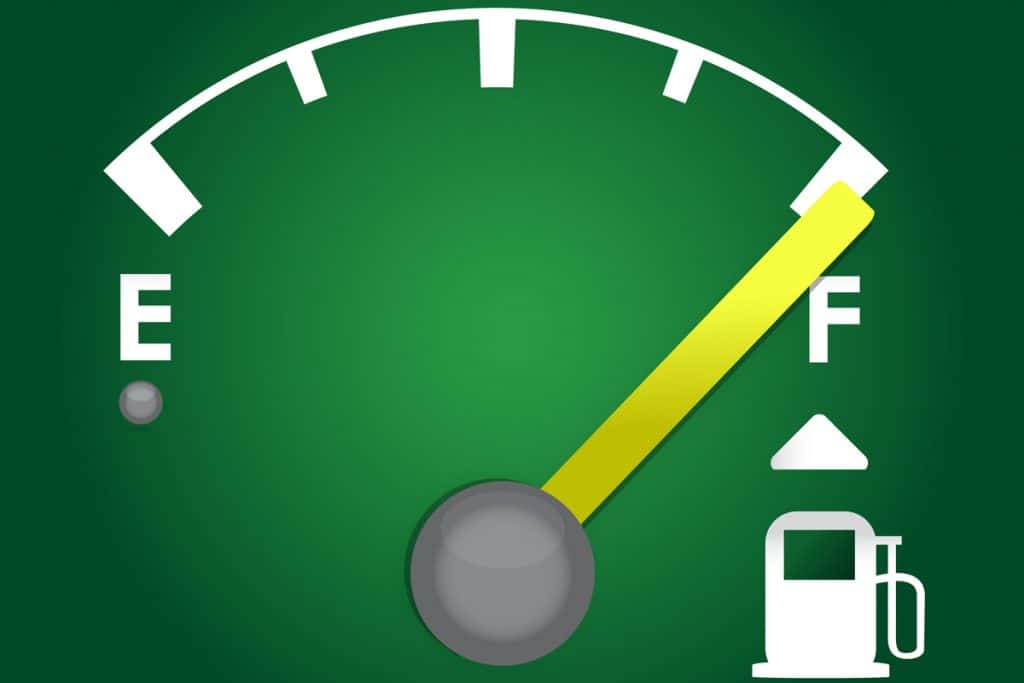
Some people might reason that keeping a near-empty gas means even better mileage due to the low car weight. While this will work out great in the short-run, you stand an even better chance of saving a lot of money by maintaining a full gas tank.
It’s never a bad thing to keep a full tank of gas as a full gas tank is highly beneficial to your car in the long run. Let’s delve deeper into this, shall we?
An empty gas tank is a considerable void filled with nothing but air. One of the contents of air is a vapor. Vapor can form on the sides of the tank through condensation. The condensation, in turn, may lead to more significant problems such as rusting and a less-efficient fuel tank.
Keeping your tank full, on the other hand, prevents your car’s fuel pump motor from overheating or clogging. If you need to save on cash, run your vehicle on no more than a quarter of the tank. It’s way better than no gas at all!
How Long Will Gas Cars Be Around For?
From the rapid advancements in automobile technology, it seems like gas cars won’t be with us for much longer. A growing lot of auto executives, business analysts, and environmental activists predict that electric vehicles will grow more and more popular in the years to come.
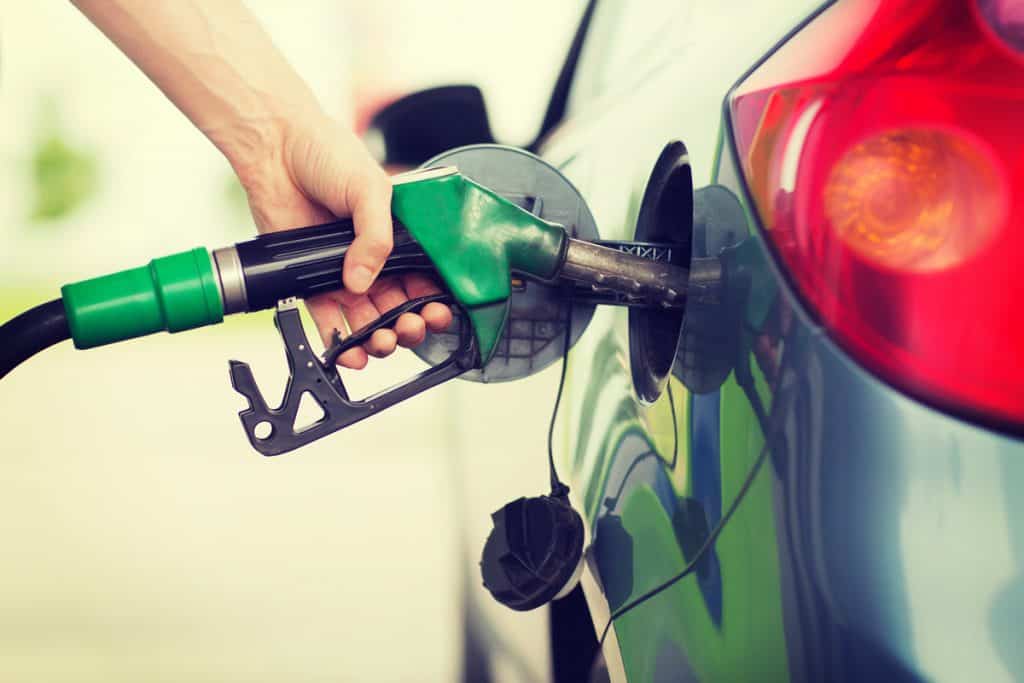
Gas cars have their benefits, but they also have their downsides, one of the biggest ones being their harsh impact on the atmosphere. For this reason, among others, electric cars are swiftly gaining momentum over their combustion counterparts.
Gas cars primarily dominate the market today, with electric vehicles occupying just a slice of the vehicle market. According to analysts, all this will change by 2025. In the years to come, more and more electric cars will brace the showrooms.
One of the features that stand out about electric cars is their cost-effective “fuel,” which is electricity.
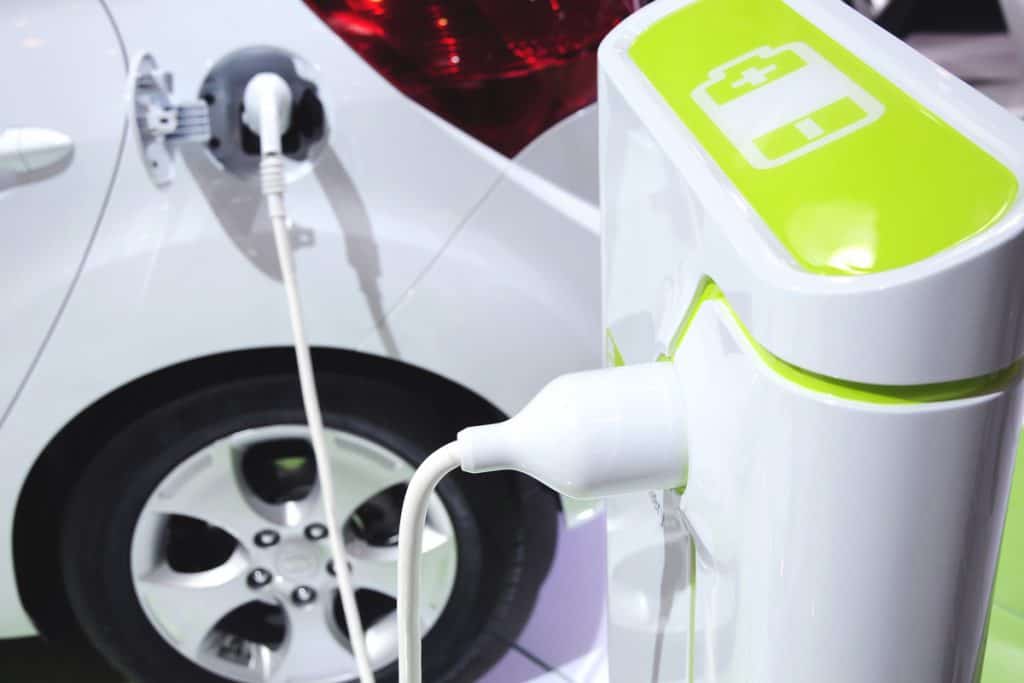
What Cars Need Diesel Instead Of Gas?
In previous months, there has been a drop in demand for diesel cars.due to the uncertainty brought by the projected tax impositions, bans, and regulations. If you have your eye on a diesel-powered vehicle, here are some concrete alternatives you should seriously consider:
2019 Mazda CX-5
With the Mazda CX-5 comes a load of premium features, including the turbocharged 4-cylinder diesel engine that’s capable of generating up to 250 hp and 310 lb-ft worth of torque. Other impressive highlights include adjustable front seats, a 7-inch touchscreen, push-button ignition, LED headlights, and the 17-inch wheels.
2020 Land Rover Range Rover
The Range Rover has what it takes to garner a spot in your garage. It comes fully equipped with an impressive scope of luxury features as well as a variety of advanced safety systems for comfortable driving. It has an estimated EV range of 19 miles that’s pretty good, given its size and weight.
And there you go! We hope you found this post helpful and informative enough. We can’t emphasize this enough, but please, keep your tank full at all times!
